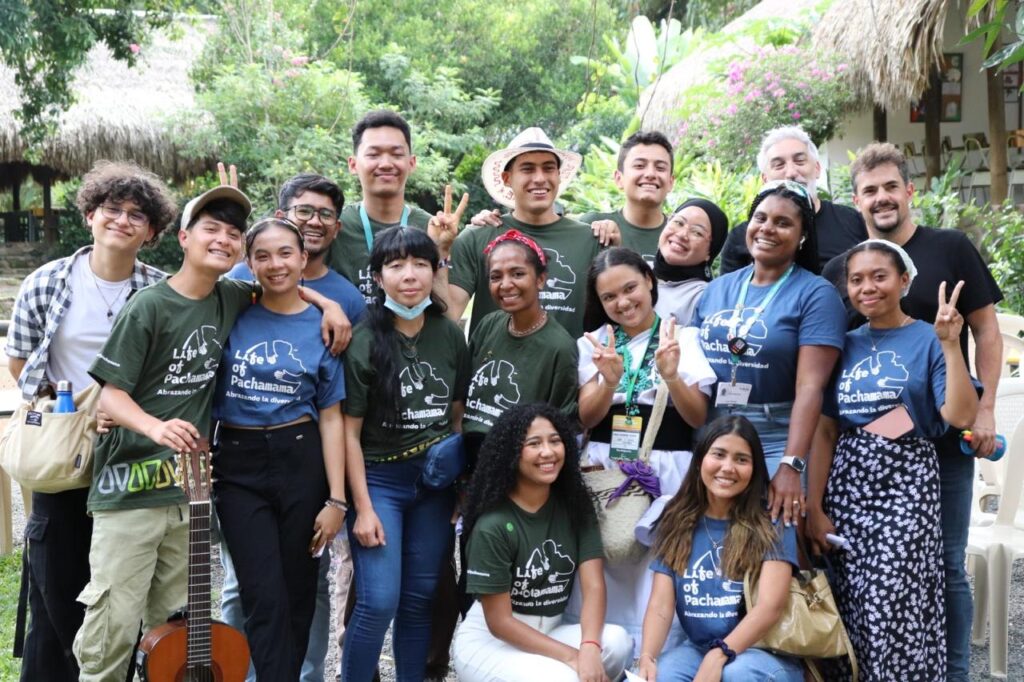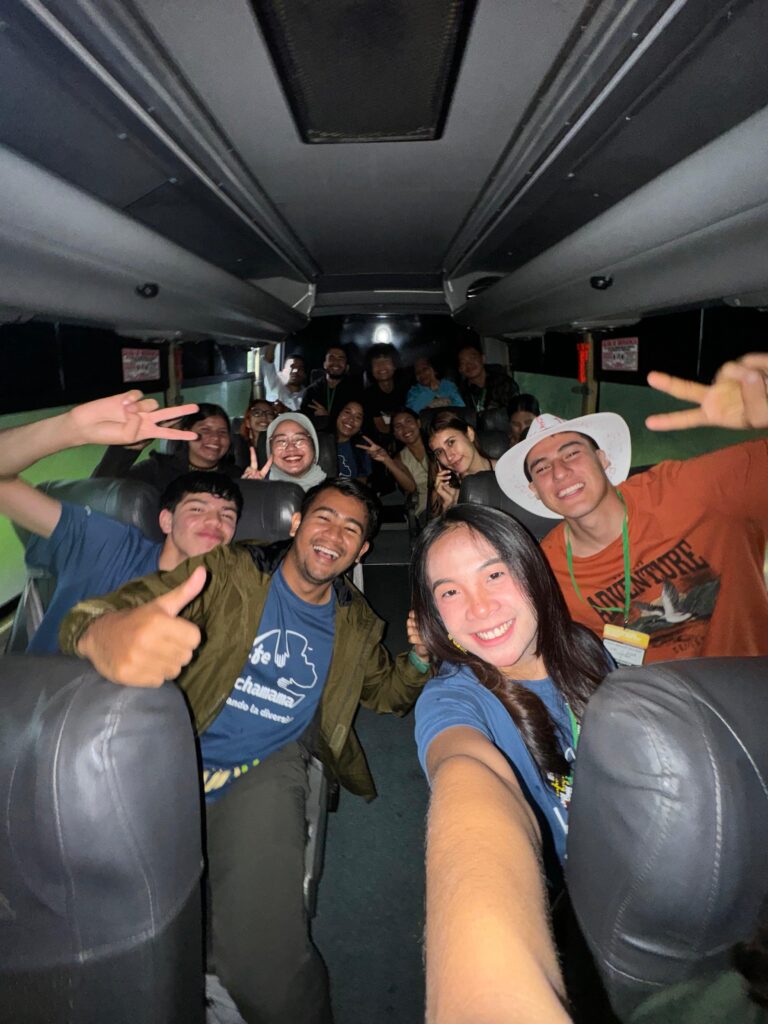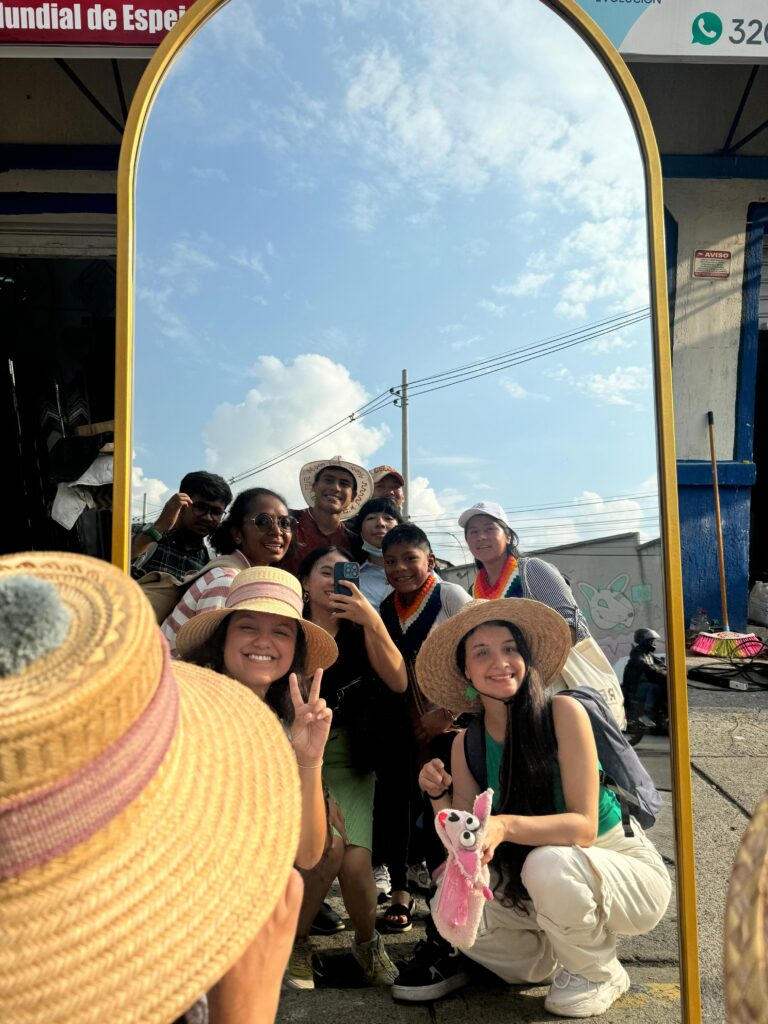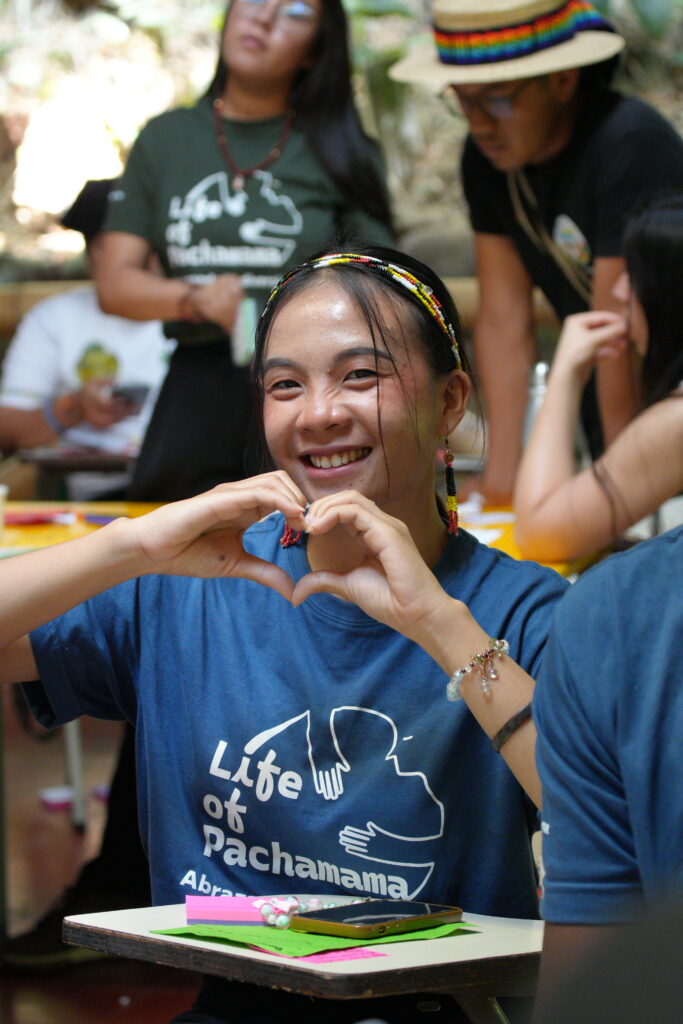
What’s happening?
We believe in the inherent dignity of all people. For years, we have worked to build an inclusive system that reimagines socio-environmental governance. We promote collaborative solutions that transcend generations, borders, and realities, always with a focus on justice for all forms of life.
Children and Youth as agents of change
Youth are taking action, demanding urgent measures, and educating others on the importance of protecting the planet. It’s time for our voices to be heard!
A global commitment
Despite the challenges, the youth of the Global South are driving change, defending their right to a healthy environment. We will work across generations and borders toward universal justice.
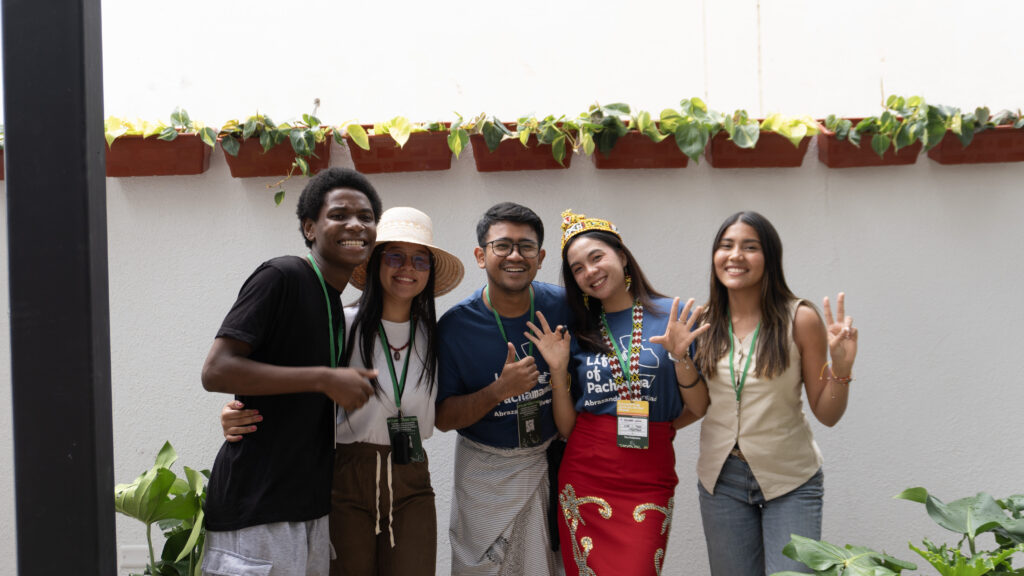
The democratization of knowledge
Why do we talk about democratizing the South?
Democracy, in its true sense—where equality is a fundamental principle and knowledge is accessible to all—finds its deepest essence in democratization. This concept is key to strengthening grassroots processes and ensuring active and effective citizen participation. But what does democratizing really mean? It involves making accessible to society what was previously out of reach. In this sense, democratizing knowledge means breaking down historical barriers that have limited its reach, especially in the Global South, where inequality has deeply shaped these restrictions.
Following this idea, the initiative Path to the Democratization of the South: Childhood, Adolescence, and Youth for Climate Action promotes access to knowledge as a right, not a privilege. However, despite recognizing the importance of this access, the mechanisms and tools available to turn this vision into reality remain limited.
From Cali to Belém
Recognizing the link between biodiversity and climate change, this initiative establishes a pathway from the 16th Conference of the Parties (COP16) of the Convention on Biological Diversity to the 30th Conference of the Parties (COP30) of the United Nations Framework Convention on Climate Change.
Methodology
Launch and scope
Supported by a strategic call for applications, utilizing a combination of proprietary channels and key partner networks to maximize reach.
Preliminary selection
A detailed evaluation of applications, including a review of submissions and personalized interviews, to identify candidates with the right profile aligned with the program’s values and objectives, ensuring their ability to actively contribute to international decision-making spaces.
Technical training sessions:
Includes an advanced 44-hour digital training cycle, supported by comprehensive sessions on climate justice, diplomacy, climate governance, strategic and institutional frameworks, international negotiation processes, and climate finance. The goal is to strengthen technical knowledge and practical skills that foster critical analysis, reflection, and the development of solutions to climate change challenges.
Selection of delegates for COP
At the end of the training, the most committed and well-prepared participants will be selected as delegates to represent their communities at COP. This selection process will be based on their performance during the training and their ability to advocate for their communities effectively and strategically in the international context.
During the Conference
Delegates will be organized into thematic working teams, managing their participation with structured plans and daily objectives during the two weeks in Belém. Monitoring and evaluation mechanisms will be implemented, including coordination meetings, participation in negotiations, and side events, ensuring alignment with the agenda and established goals.
Impact and knowledge transfer in the field
At the end of the conference, delegates will be provided with tools to transfer the knowledge gained to their communities, implementing outreach and feedback activities to share insights and strengthen local capacities and advocacy.
